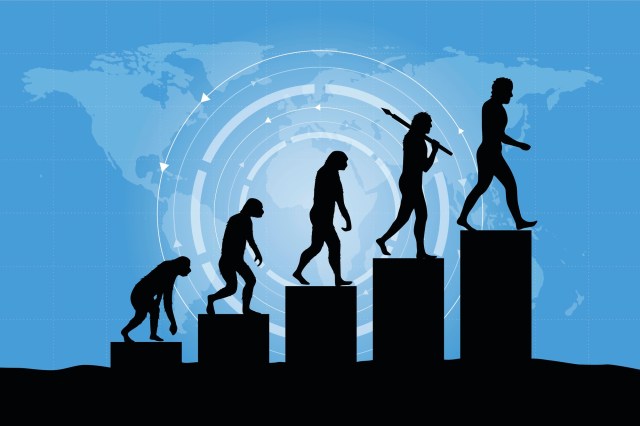Credit: Getty

Here is a list of 82 things that happened in 2017 that made the world a better place. It’s from Marian L Tupy of the Global Centre for Liberty and Prosperity. In a follow up article for CapX, he asks why, given all this good news, we seem so fixated on the bad news:
“In response to the question ‘All things considered, do you think the world is getting better or worse, or neither getting better nor worse?’, just 10 per cent in Sweden, 6 per cent in the US, 4 per cent in Germany and 3 per cent in France thought things were getting better. Why? Because, it turns out, we are pessimists by nature.”
Tupy – one of a select band of New Optimists – puts forward various explanations for the prevailing mood of pessimism. We start with a Darwinian argument:
“Human beings are constantly bombarded with information. Because our brains have a limited computing power, they have to separate what is important, such as a lion running toward us, from what is mundane, such as a bed of flowers. Because survival is more important than all other considerations, most information enters our brains through the amygdala – a part of the brain that is ‘responsible for primal emotions like rage, hate and fear.’”
Our ancestors were those people who were wary of the sudden sources of danger, because those who weren’t didn’t live long enough to reproduce. We are therefore the inheritors of a somewhat paranoid frame of mind.
Tupy also suggest that bad news is, in general, more noticeable than good news:
“…good and bad things tend to happen on different timelines. Bad things, such as plane crashes, can happen quickly. Good things, such as the strides humanity has made in the fight against HIV/AIDS, tend to happen incrementally and over a long period of time. As Kevin Kelly from Wired has put it, ‘Ever since the Enlightenment and the invention of Science, we’ve managed to create a tiny bit more than we’ve destroyed each year. But that few percent positive difference is compounded over decades in to what we might call civilisation … [Progress] is a self-cloaking action seen only in retrospect.’”
I’m not sure that’s entirely true. In the modern world, the biggest threats can be every bit as gradual as the progress we make:
- A key example is climate change, in which man-made global warming is creeping up on us over decades, not suddenly appearing like a lion from the undergrowth;
- Other examples include the growing problem of antibiotic resistance;
- The accumulation of plastic waste in the oceans;
- The build-up of problem debt in the financial system;
- The spread of the opioid epidemic in America;
- The propagation of Islamic extremism on the internet;
- Diminishing returns from once reliable innovation pathways;
- The long-term concentration of market power in the hands of few big tech companies.
These are systemic threats arising from highly complex, large-scale human activities that didn’t exist when we were still emerging as a species. While evolution may have sensitised us to immediate threats to our personal safety, it won’t have done much to prepare us for the big ticket items I’ve listed above. Our prehistoric ancestors were incapable of either creating or solving such problems.
Tupy argues that politicians “have realised that banging on about ‘crises’ increases their power and can get them re-elected.”
That is often true of sudden, dramatic pieces of bad news – in which a particular disaster is spun into a wider threat to the general public (for which one’s political opponents are entirely to blame, of course). However, it usually isn’t true of gradual-but-systemic dangers to the common good.
Time-and-again, the political (and media) response to this second kind of bad news is not overkill, but too-little-too-late.










Join the discussion
Join like minded readers that support our journalism by becoming a paid subscriber
To join the discussion in the comments, become a paid subscriber.
Join like minded readers that support our journalism, read unlimited articles and enjoy other subscriber-only benefits.
Subscribe